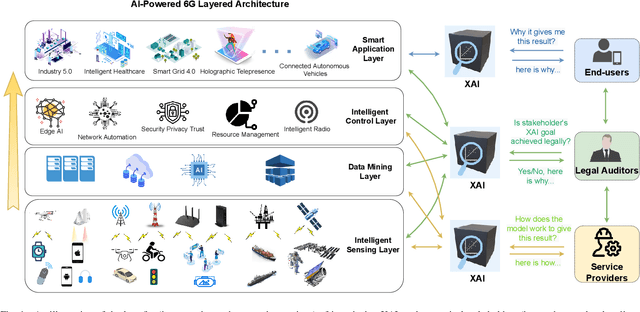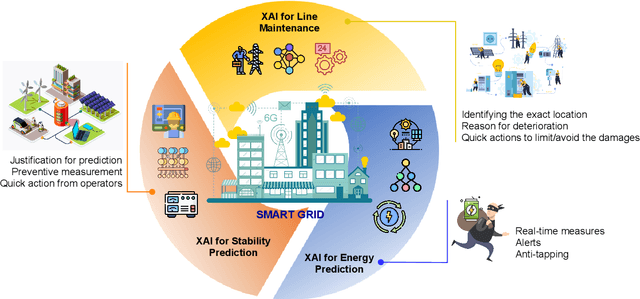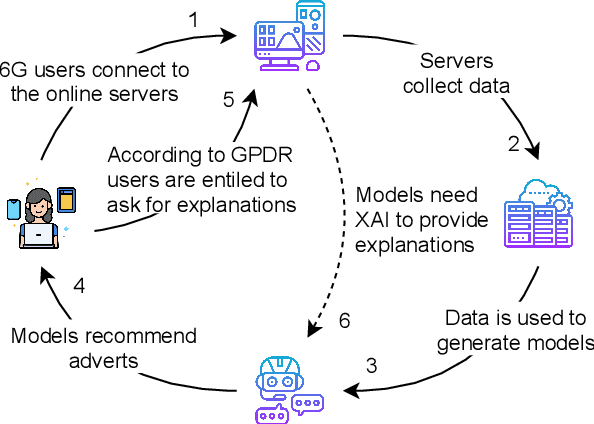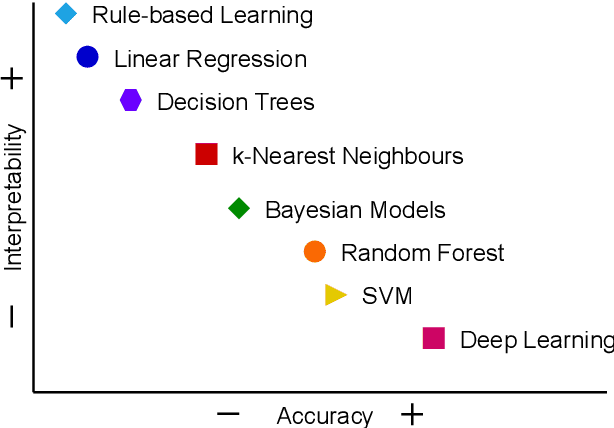Luis Miralles-Pechuaán
Explainable AI for B5G/6G: Technical Aspects, Use Cases, and Research Challenges
Dec 09, 2021



Abstract:When 5G began its commercialisation journey around 2020, the discussion on the vision of 6G also surfaced. Researchers expect 6G to have higher bandwidth, coverage, reliability, energy efficiency, lower latency, and, more importantly, an integrated "human-centric" network system powered by artificial intelligence (AI). Such a 6G network will lead to an excessive number of automated decisions made every second. These decisions can range widely, from network resource allocation to collision avoidance for self-driving cars. However, the risk of losing control over decision-making may increase due to high-speed data-intensive AI decision-making beyond designers and users' comprehension. The promising explainable AI (XAI) methods can mitigate such risks by enhancing the transparency of the black box AI decision-making process. This survey paper highlights the need for XAI towards the upcoming 6G age in every aspect, including 6G technologies (e.g., intelligent radio, zero-touch network management) and 6G use cases (e.g., industry 5.0). Moreover, we summarised the lessons learned from the recent attempts and outlined important research challenges in applying XAI for building 6G systems. This research aligns with goals 9, 11, 16, and 17 of the United Nations Sustainable Development Goals (UN-SDG), promoting innovation and building infrastructure, sustainable and inclusive human settlement, advancing justice and strong institutions, and fostering partnership at the global level.
 Add to Chrome
Add to Chrome Add to Firefox
Add to Firefox Add to Edge
Add to Edge